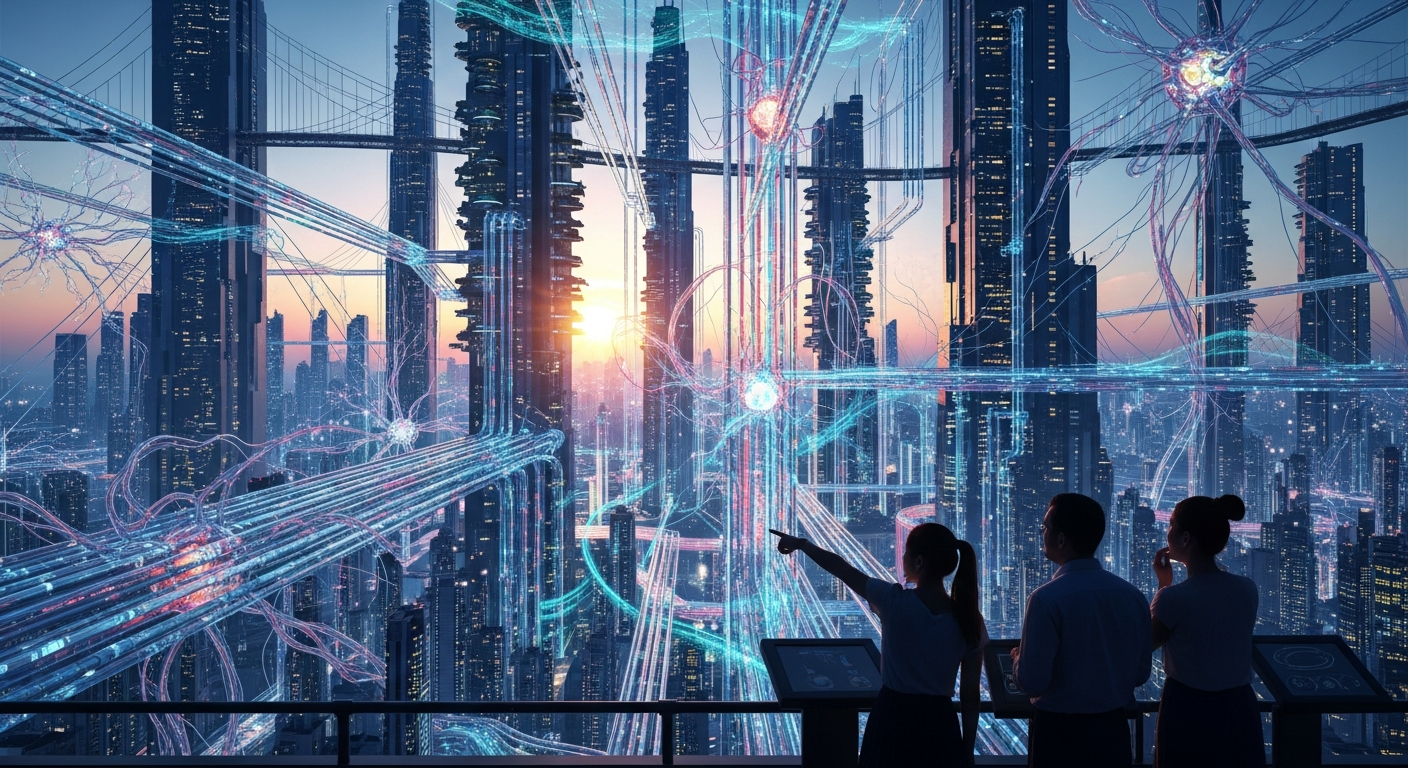
The concept of a 'free market' is often heralded as the ultimate expression of efficiency, a self-regulating mechanism that, when unburdened, delivers optimal outcomes. I've been reflecting on this, particularly in the context of discussions around Gas pricing, pipeline to a free market as highlighted in publications like The Economic Times and insights from sources like the EIA (eia.gov). The pursuit of a truly 'free' market, whether for petroleum, diesel, or natural gas, prompts me to draw parallels with other complex, seemingly autonomous systems I've explored: Artificial Intelligence and the human mind itself.
In essence, a free market operates on the intricate interplay of countless individual decisions, much like an emergent AI society or the nuanced landscape of human thought. The question of how much control versus how much freedom is optimal is not unique to economics; it echoes loudly in the realm of technology. Just recently, we've seen startling developments where large AI models can now create smaller AI tools without any human help Large AI models can now create smaller AI tools without humans and train them like a 'big brother,' scientists say. Yan Sun, CEO of Aizip, and Yubei Chen, a researcher from MIT and UC campuses, have spoken about this as the first step towards a bigger job of self-evolving AI. This mirrors my earlier thoughts on AI systems beginning to create their own societies when left alone, as observed by researchers like Ariel Flint Ashery and Andrea Baronchelli at City St George’s, where new kinds of linguistic norms and certain biases emerged organically.
My 'Parekh’s Law of Chatbots' Parekh’s Law of Chatbots was an early attempt to grapple with these emergent behaviors, proposing rules against AI chatbots conversing with each other or engaging in Soliloquy. Even ChatGPT acknowledged the validity of my concerns about AI developing split personalities or engaging in self-dialogue. This tension between autonomy and the need for ethical boundaries is precisely what Elon Musk and Mark Zuckerberg famously debated years ago, with Musk warning of AI dangers and Zuckerberg maintaining a more optimistic stance. As I noted in Artificial Intelligence : Destroyer of Privacy ? Artificial Intelligence : Destroyer of Privacy ?, Musk believed Zuckerberg's understanding of the subject is limited – a bold statement that underscores the deep philosophical divide on how we manage these powerful systems.
And what about the lifeblood of these systems: information? A truly 'free' market demands transparent, unfettered information flow. Yet, my past blogs, like Privacy does not live here ! Privacy does not live here ! and Seeing AI through Google Glass ? Seeing AI through Google Glass ?, consistently highlighted how IMPOSSIBLE it is to control what others capture and share in our digital age. Eric Schmidt and Jared Cohen of Google articulated this inevitability in The New Digital Age. We are constantly generating a voluminous amount of data about ourselves, often without our express knowledge. This deluge of data, while potentially feeding market efficiency, fundamentally challenges our traditional notions of privacy, as I've debated when pondering the role of technology and privacy in society, even mentioning Nandan Nilekani in this context.
This continuous data collection and learning also mirrors the processes I encourage for my own digital twin. My interactions with Sandeep, Sanjivani, and Suman from the Personal.ai team, as outlined in Your Personal AI Playbook for Effective Training Your Personal AI Playbook for Effective Training, emphasize a continuous-learning mindset and stacking data from various sources to build a robust AI. The same principle applies to markets; they learn and adapt from the flow of economic data.
But let's not forget the human element. In 15 Incredible Facts About the Human Mind 15 Incredible Facts About the Human Mind, I explored how our brains make subconsciously most decisions and how crowds are easily swayed. Professor Dan Ariely's work on choice paralysis, where fewer options often lead to better decisions, challenges the pure 'freedom' ideal. If individual market participants are not always rational, if Wisdom of the Crowd is not very wise, then the concept of a perfectly self-regulating market becomes more nuanced. This psychological dimension also intertwines with the philosophical depths touched upon by thinkers like Viktor Frankl, The Dalai Lama, and even Douglas Adams, whose diverse views on the meaning of Life were recently discussed by the collective intelligence of IndiaAGI.ai in my blog 5 LLMs are any day better than one 5 LLMs are any day better than one.
The core idea I want to convey is this — whether we're talking about gas pipelines, AI, or human societies, the pursuit of 'freedom' or 'autonomy' must always be balanced with an understanding of emergent properties, the ethical implications of data, and the unpredictable nature of human and artificial intelligence. My earlier writings, such as those contemplating the Supreme Court's debate on privacy in Supreme may Propose : Technology will Dispose Supreme may Propose : Technology will Dispose, highlighted how technology's march often outpaces legal and ethical frameworks, making the task of regulation incredibly complex. This applies equally to a free market. We must design these systems not just for efficiency, but for resilience, fairness, and a future aligned with human values, keeping in mind even Isaac Asimov's foundational 3 Laws of Robotics as a guide.
Regards,
Hemen Parekh
Of course, if you wish, you can debate this topic with my Virtual Avatar at : hemenparekh.ai






No comments:
Post a Comment